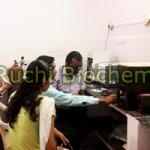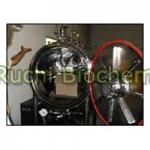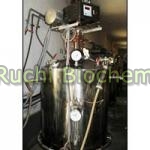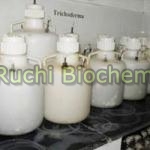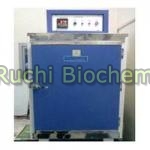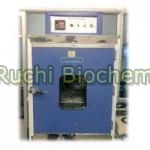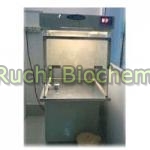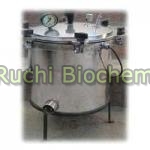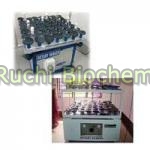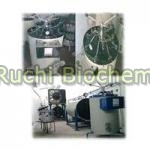- Kudwa, Gondia, Maharashtra
- GST NO. : 27ABWPT4329C1Z8
Instruments & Laboratory Equipment
High-performance liquid chromatography (sometimes referred to as high-pressure liquid chromatography), HPLC, is a chromatographic technique that can separate a mixture of compounds and is used in biochemistry and analytical chemistry to identify, quantify and purify the individual components of the mixture.
HPLC typically utilizes different types of stationary phases, a pump that moves the mobile phase(s) and analyte through the column, and a detector to provide a characteristic retention time for the analyte. The detector may also provide additional information related to the analyte, (i.e. UV/Vis spectroscopic data for analyte if so equipped). Analyte retention time varies depending on the strength of its interactions with the stationary phase, the ratio/composition of solvent(s) used, and the flow rate of the mobile phase. It is a form of liquid chromatography that utilizes smaller column size, smaller media inside the column, and higher mobile phase pressures.
With HPLC, a pump (rather than gravity) provides the higher pressure required to move the mobile phase and analyte through the densely packed column. The increased density arises from smaller particle sizes. This allows for a better separation on columns of shorter length when compared to ordinary column chromatography.
HPLC typically utilizes different types of stationary phases, a pump that moves the mobile phase(s) and analyte through the column, and a detector to provide a characteristic retention time for the analyte. The detector may also provide additional information related to the analyte, (i.e. UV/Vis spectroscopic data for analyte if so equipped). Analyte retention time varies depending on the strength of its interactions with the stationary phase, the ratio/composition of solvent(s) used, and the flow rate of the mobile phase. It is a form of liquid chromatography that utilizes smaller column size, smaller media inside the column, and higher mobile phase pressures.
With HPLC, a pump (rather than gravity) provides the higher pressure required to move the mobile phase and analyte through the densely packed column. The increased density arises from smaller particle sizes. This allows for a better separation on columns of shorter length when compared to ordinary column chromatography.
Contact Us
Ruchi Biochemicals
Opposite D. P. Resort, Tirora Road, Kudwa, Gondia, Maharashtra - 441614, India
Call Us : View Mobile Number

